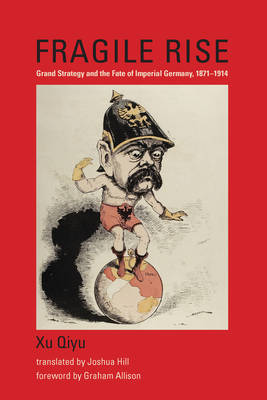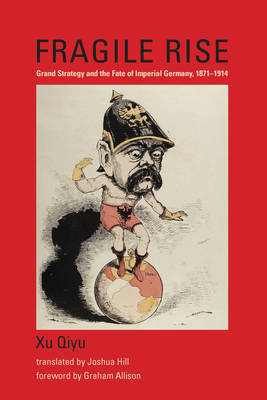
- Retrait gratuit dans votre magasin Club
- 7.000.000 titres dans notre catalogue
- Payer en toute sécurité
- Toujours un magasin près de chez vous
- Retrait gratuit dans votre magasin Club
- 7.000.000 titres dans notre catalogue
- Payer en toute sécurité
- Toujours un magasin près de chez vous
67,95 €
+ 135 points
Description
Germany's rise to power before World War I from a Chinese persective, and the geopolitical lessons for today. A series of solemn anniversary events have marked the centenary of World War I. Could history repeat itself in today's geopolitics? Now, as then, a land power with a growing economy and a maritime power with global commitments are the two leading states in the international system. Most ominously, the outbreak of war in 1914 is a stark reminder that nations cannot rely on economic interdependence and ongoing diplomacy to keep the peace. In Fragile Rise, Xu Qiyu offers a Chinese perspective on the course of German grand strategy in the decades before World War I. Xu shows how Germany's diplomatic blunders turned its growing power into a liability instead of an asset. Bismarck's successors provoked tension and conflict with the other European great powers. Germany's attempts to build a powerful navy alienated Britain. Fearing an assertive Germany, France and Russia formed an alliance, leaving the declining Austro-Hungarian Empire as Germany's only major ally. Xu's account demonstrates that better strategy and statesmanship could have made a difference--for Germany and Europe. His analysis offers important lessons for the leaders of China and other countries. Fragile Rise reminds us that the emergence of a new great power creates risks that can be managed only by adroit diplomats, including the leaders of the emerging power. In the twenty-first century, another great war may not be inevitable. Heeding the lessons of Fragile Rise could make it even less likely.
Spécifications
Parties prenantes
- Auteur(s) :
- Editeur:
Contenu
- Nombre de pages :
- 368
- Langue:
- Anglais
- Collection :
Caractéristiques
- EAN:
- 9780262549738
- Date de parution :
- 31-10-23
- Format:
- Livre broché
- Format numérique:
- Trade paperback (VS)
- Dimensions :
- 156 mm x 235 mm
- Poids :
- 566 g







